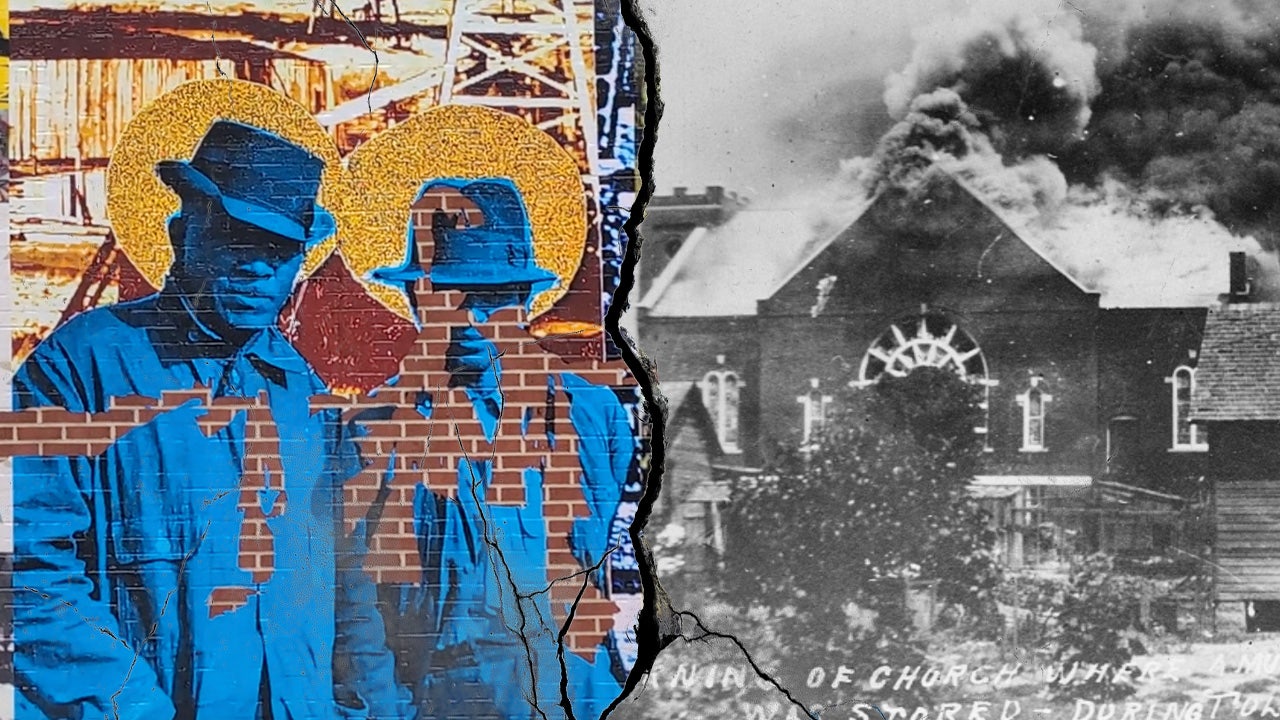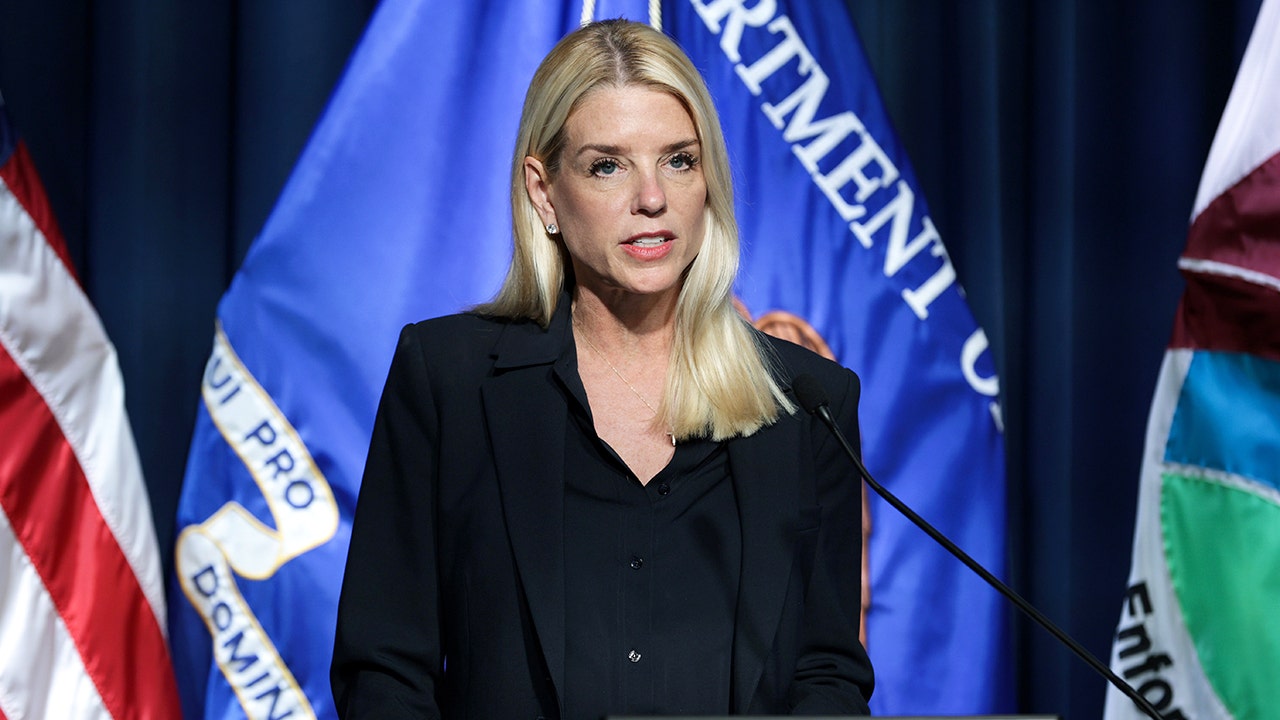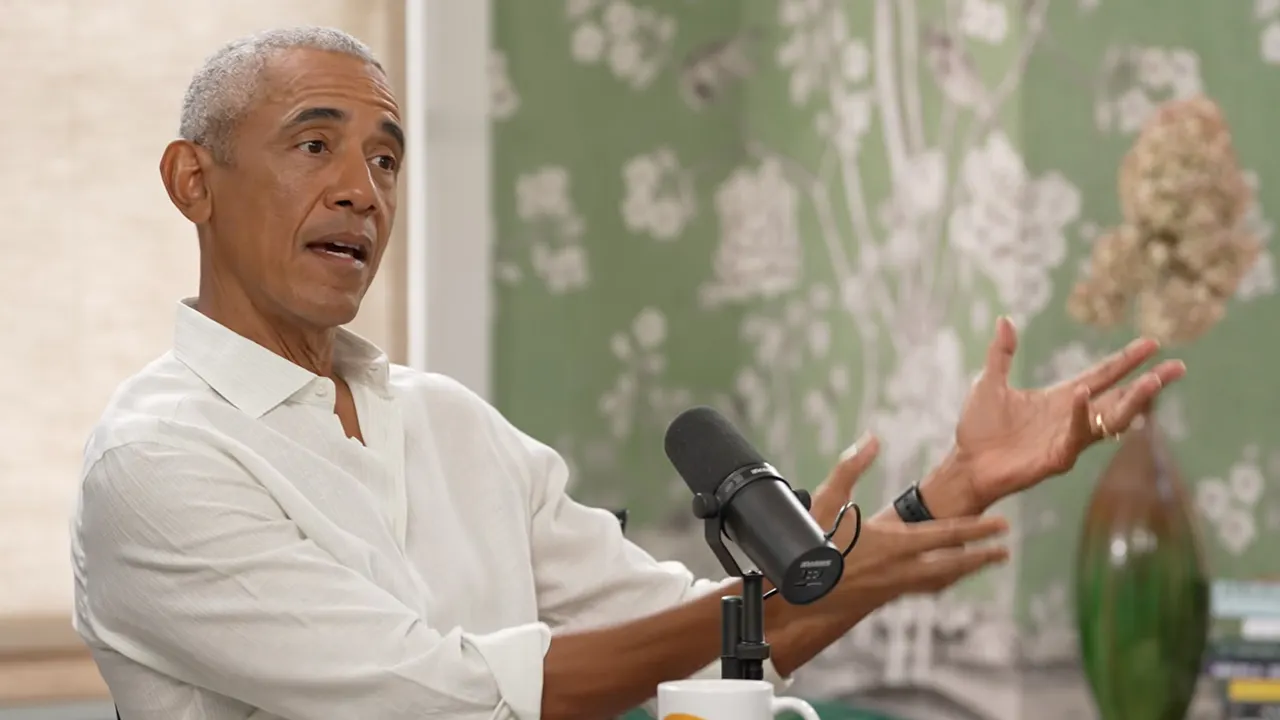NEWYou can now listen to Fox News articles!
Tulsa’s mayor is pushing for a $105 million private trust to give descendants of the 1921 Tulsa Race Massacre housing help and scholarships in a plan that has garnered support across party lines.
“No matter what part of town you live in, no matter what you look like, no matter your family’s history here, we all need to come together to mitigate this harm,” Monroe Nichols, the first Black mayor of Oklahoma’s second-largest city, told Fox News Digital this week.
The massacre, believed to be one of the worst incidents of racial violence in American history, occurred on May 31 and June 1, 1921, when a White mob descended on Greenwood, a prosperous neighborhood of Tulsa also known as Black Wall Street.
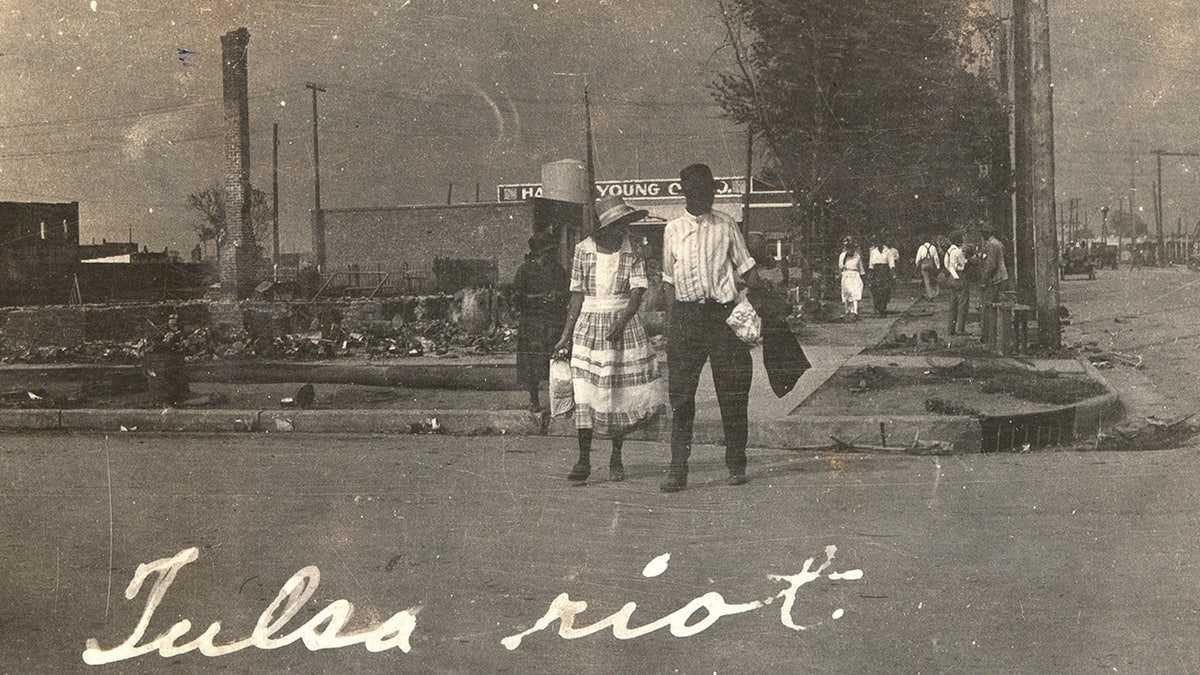
A couple walks across a street with smoke rising in the distance after the Tulsa Race Massacre in June 1921. (Oklahoma Historical Society via Getty Images)
ARCHAEOLOGISTS EXHUME REMAINS TO IDENTIFY VICTIMS OF 1921 TULSA RACE MASSACRE
More than 1,000 homes, churches and businesses were looted and burned, and the district was largely destroyed.
Historians estimate as many as 300 people were killed, but with many of the victims buried in unmarked graves, it’s difficult to reach a precise count.
Greenwood residents filed more than $1.8 million in claims against the city of Tulsa in the aftermath, according to a 2021 state report, worth around $30 million in today’s dollars. The city blocked all of the claims except one, from a White shop owner, according to the report.
Nichols first announced his “Road to Repair” plan at the beginning of the month. It calls for the creation of a charitable trust with a goal of securing $105 million in assets. Nichols hopes to have most of that funding secured or committed by June 1, 2026, and said he’s going to kick off a national fundraising campaign.
Details would be hashed out over the next year between an executive director and board of trustees, but the initial plan calls for $60 million of the trust to go toward revitalizing buildings and community improvements.
The rest would help descendants buy homes or land, and fund scholarships. Cash payments to descendants of the massacre or the last two survivors are not included in the plan.
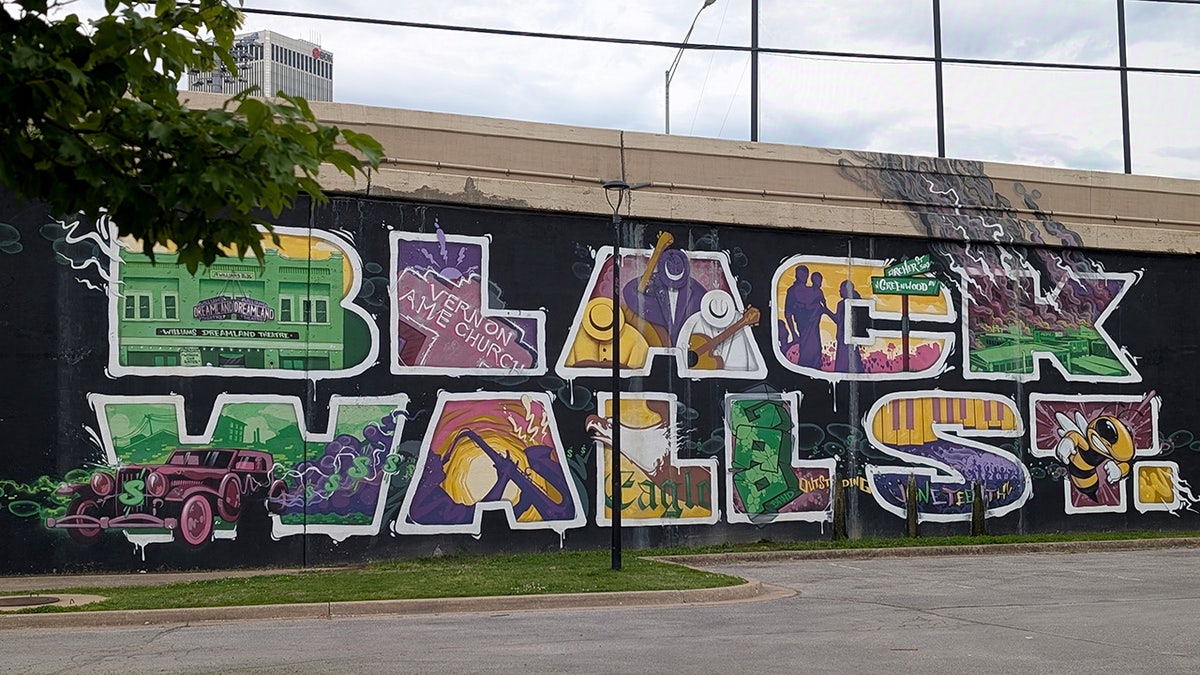
A Black Wall Street mural is seen on May 6, 2025, in Tulsa’s Greenwood District. Greenwood was the center of “Black wealth” in Tulsa, Nichols said, “a place that I think everybody who really thinks about the American dream would have been very proud of.” (Photo by Hannah Ray Lambert/Fox News Digital)
HOUSE DEMOCRAT TO INTRODUCE REPARATIONS PUSH, DECLARES ‘MORAL OBLIGATION’ TO SEND TRILLIONS TO BLACK AMERICANS
While the plan has been described by some as a form of reparations, Nichols adamantly avoids using that word himself.
“‘Reparations’ means different things to different people, and it’s really become a politically charged word,” said Nichols, who formerly served as a Democratic state representative in Oklahoma. “I never want something like a word to get in the way of the work that we need to do.”
The private nature has garnered support from local Republicans, a demographic traditionally opposed to reparations.
“We commend Mayor Nichols for adopting a conservative approach by establishing the Greenwood Trust as a private charitable entity rather than relying on taxpayer dollars,” the Tulsa Republican Club said last week in a statement. “By encouraging private support and donations, this initiative aligns with the principle that communities are best served when they take charge of their own future through collaboration and voluntary contributions.”
Nichols said he isn’t aware of any other cities taking a privately funded approach to this issue, and hopes it can serve as a model for other communities.
“It came, really, in a discussion of like, how do we actually get this done without the typical divisions when it comes to this kind of stuff?” he said. He added he wants to ensure it passes any “legal test.”
Evanston, Illinois, made history in 2019 as the first city in the nation to create a government-funded reparations program, pledging to give $25,000 to qualifying Black residents and descendants of residents to atone for past housing discrimination. That program is funded by a tax on recreational cannabis.
While the funding sources differ, Nichols said Evanston’s focus on housing laid some of the foundation for Tulsa’s plan.
“Most of us, if you have any wealth, it’s in land and property,” he said. “So the idea is that wealth was stolen from descendants. How can we restore that on some level?”

Tulsa Mayor Monroe Nichols speaks during an event remembering the Tulsa Race Massacre on June 1, 2025, at the Greenwood Cultural Center in Tulsa, Oklahoma. (AP Photo/Joey Johnson)
In addition to the trust, the “Road to Repair” continues the investigation into mass graves in an effort to “bring closure to families” who may not yet know for certain the fate of their ancestors, Nichols said.
The city has also released 45,000 pages of documents relating to the massacre.
CLICK TO GET THE FOX NEWS APP
Some of the documents included discussions about restoring the Greenwood District and promises that were never delivered on, Monroe said. Now, 104 years later, the city is looking to move past conversation and act.
“Descendants who for so long have not necessarily been given their due, now have an opportunity for that to happen,” he said.

